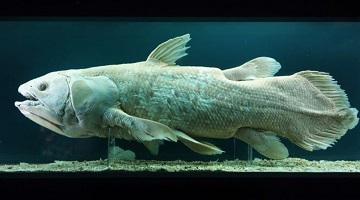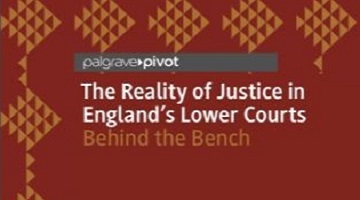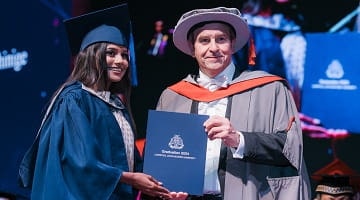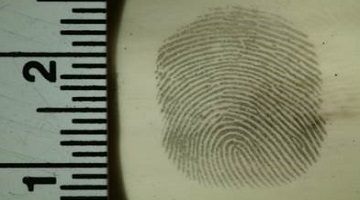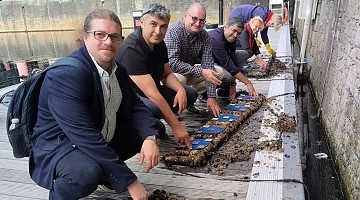About this course
LJMU's Forensic Bioscience MSc is ideal for forensic science practitioners and science graduates with its state-of-the-art facilities and research-informed curriculum.
- Accredited by the Chartered Society of Forensic Sciences
- Enrol on this course which is taught by leading experts in the field and informed by research and excellent industry links
- Enjoy access to state-of-the-art laboratories, crime scene facilities and a moot room
- Learn from forensic anthropologists, biologists, crime scene and fire investigation specialists and leading in-house academics
- Benefit from a local, national or international work placement
- Develop transferrable skills in legal matters and research methods and specialise in your chosen area
Forensic bioscience involves the understanding and application of many diverse techniques and this programme aims to enhance your depth and breadth of knowledge, understanding and practical skills via a stimulating and challenging curriculum.
Unique in the North West, the course is led by experts in the field and focuses on the biological aspects of forensics. Key topics include decomposition, entomology, microbiology, histology and DNA analysis. You will also study forensic medicine and issues such as post mortem interval determination and identification. You will explore the criminal justice system as a setting in which a forensic scientist might work and discover how to apply appropriate techniques to complex forensic cases, critically evaluating current crime scene techniques.
The course attracts graduates from disciplines including biology, zoology, biochemistry and forensic science, as well as those working in DNA Analysis, forensic biology, anthropology and the environmental sector. Indeed, anyone interested in the molecular and biological aspects of forensics will appreciate this programme.
You will explore emerging and specialist disciplines as well as extending your understanding of current and biological techniques and practice. Developing analytical, critical and problem solving skills, you will become a creative problem solver. You will also enhance your independent research skills, going on to enjoy excellent career development opportunities in forensic and analytical biosciences.
Course modules
Discover the building blocks of your programme
Your programme is made up of a number of core and option modules and a research project.
Further guidance on modules
Modules are designated core or optional in accordance with professional body requirements, as applicable, and LJMU’s Academic Framework Regulations. Whilst you are required to study core modules, optional modules provide you with an element of choice. Their availability may vary and will be subject to meeting minimum student numbers.
Where changes to modules are necessary these will be communicated as appropriate.
Core modules
Optional Modules
Professional accreditation/links
MSc Forensic Bioscience is accredited by the Chartered Society of Forensic Sciences.
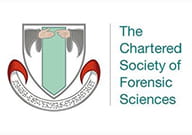
Your Learning Experience
An insight into teaching on your course
Teaching hours
There will be some week-to-week differences in the exact time and location of the scheduled teaching for each module, depending on whether the sessions involve lectures, practicals or other forms of teaching. You should spend the remaining time in private and independent study, preparing assignments, revising for tests and exams and, very importantly, reading around your subject. The total amount of private study time that you should spend in a particular module will be provided when you start the course. For the research project (May-August) you will be expected to attend full-time, i.e. 9.00am-5.00pm, Monday-Friday.
Teaching methods
There is a 50/50 split between theoretical and practical content and you will learn via a mix of seminars, workshops, case studies, external visits, lectures, practical sessions and e-learning.
Applied learning
With regular lectures from professional practitioners, the curriculum is directly informed by the latest developments and entirely relevant to the needs of todays employers. The programme has been praised by external bodies for its "modules designed around national standards" and the "realistic environments created to facilitate learning and assessment".
How learning is monitored on your programme
To cater for the wide-ranging content of our courses and the varied learning preferences of our students, we offer a range of assessment methods on each programme.
Assessment methods for this programme include: paper analysis, scientific reports, dissertations, court room presentations and expert witness statements.
Where you will study
You will study at the Byrom Street site in the University's City Campus. With an ongoing £12 million investment in laboratory facilities here and state-of-the-art research facilities in the newly developed Life Sciences building, you'll enjoy a first class study environment. Legal aspects of the course are taught in the Moot Room in the multi-million pound Redmonds building on Brownlow Hill.
Course tutors

David Lamont
Programme Leader
I immensely enjoyed working as a Forensic Scientist in the criminal justice system. Now I get to pass on that knowledge and hopefully enthusiasm to the next generation.
I immensely enjoyed working as a Forensic Scientist in the criminal justice system. Now I get to pass on that knowledge and hopefully enthusiasm to the next generation.
Dr Lamont worked as a practitioner in the field of Forensic Science for a decade, before joining LJMU to teach on the Forensic Science programmes and undertake research in the field. He previously worked for the Metropolitan Police Service’s Forensic Services department in their Biology and Trace unit, covering serious crimes in London. This included firearms incidents, murders, sexual assaults and even terrorist incidents. His expertise lies predominantly in evidence recovery and the examination of evidence in a lab environment. Particularly case assessment and interpreting and evaluating the significance of DNA findings in the context of a case, as well as the attribution of DNA to bodily fluids. David's research interests include body fluids/DNA, Y-STR profiling, case assessment and interpretation, novel DNA recovery methods and the subsequent analysis.
-
 Lecturer/Senior Lecturer
Lecturer/Senior Lecturer -
 Lecturer/Senior Lecturer
Lecturer/Senior Lecturer
Career paths
Further your career prospects
LJMU has an excellent employability record with 96% (HESA 2018) of our postgraduates in work or further study six months after graduation. Our applied learning techniques and strong industry connections ensure our students are fully prepared for the workplace on graduation and understand how to apply their knowledge in a real world context.
The Forensic Bioscience department has an impressive range of national and international industry contacts and works closely with local police forces.
Numerous career paths are available including forensic practice, working in biology-based industries, the NHS, trading standards and teaching and lecturing in schools, colleges and universities. Further possibilities include roles working with diagnostic products, proficiency testing, quality assurance, reference standards and genomics.
Alternatively, you may choose to further your research career, concentrating on specific areas of forensic science, such as DNA analysis or entomology.
Tuition fees and funding
- Fee:
- £10,705
The University reserves the right to increase tuition fees in accordance with any changes to the maximum allowable fees set by the UK Parliament. In the event of such a change, any fee increase will be subject to a maximum cap of 10% of the total course cost as originally stated at the time of your offer.
Fees
The fees quoted at the top of this page cover registration, tuition, supervision, assessment and examinations as well as:
- library membership with access to printed, multimedia and digital resources
- access to programme-appropriate software
- library and student IT support
- free on-campus wifi via eduroam
Additional costs
Although not all of the following are compulsory/relevant, you should keep in mind the costs of:
- accommodation and living expenditure
- books (should you wish to have your own copies)
- printing, photocopying and stationery
- PC/laptop (should you prefer to purchase your own for independent study and online learning activities)
- mobile phone/tablet (to access online services)
- field trips (travel and activity costs)
- placements (travel expenses and living costs)
- student visas (international students only)
- study abroad opportunities (travel costs, accommodation, visas and immunisations)
- academic conferences (travel costs)
- professional-body membership
- graduation (gown hire etc)
Funding
There are many ways to fund postgraduate study for home and international students. From loans to International Scholarships and subject-specific funding, you’ll find all of the information you need on our specialist postgraduate funding pages.
Please be aware that the UK’s departure from the EU may affect your tuition fees. Learn more about your fee status and which tuition fees are relevant to you.
Entry requirements
You will need:
Qualification requirements
How to apply
Securing your place at LJMU
To apply for this programme, you are required to complete an LJMU online application form. You will need to provide details of previous qualifications and a personal statement outlining why you wish to study this programme.
Your university life
From accommodation and academic support to clubs and societies. Find out what LJMU has to offer.
Related Links
Talk to our students
Connect with a current LJMU student for advice and guidance on university life, courses and more.
See what our students are saying
At LJMU we want you to know you’re making the right choice by studying with us. You can see what our students are saying about their experience with us through their reviews on the following websites:
Related Links
News and views
Browse through the latest news and stories from the university
The University reserves the right to withdraw or make alterations to a course and facilities if necessary; this may be because such changes are deemed to be beneficial to students, are minor in nature and unlikely to impact negatively upon students or become necessary due to circumstances beyond the control of the University. Where this does happen, the University operates a policy of consultation, advice and support to all enrolled students affected by the proposed change to their course or module.




















